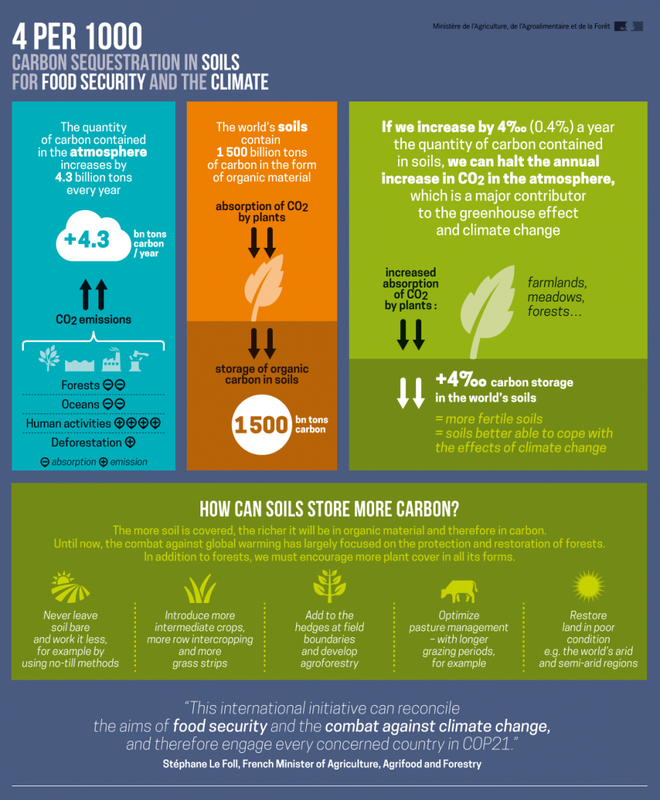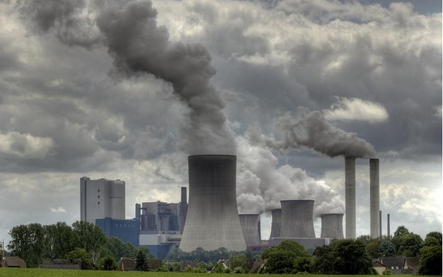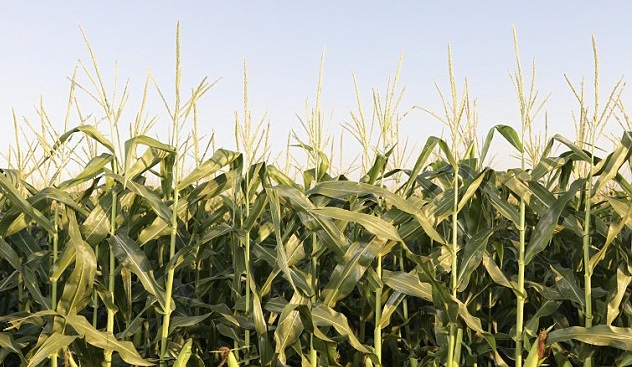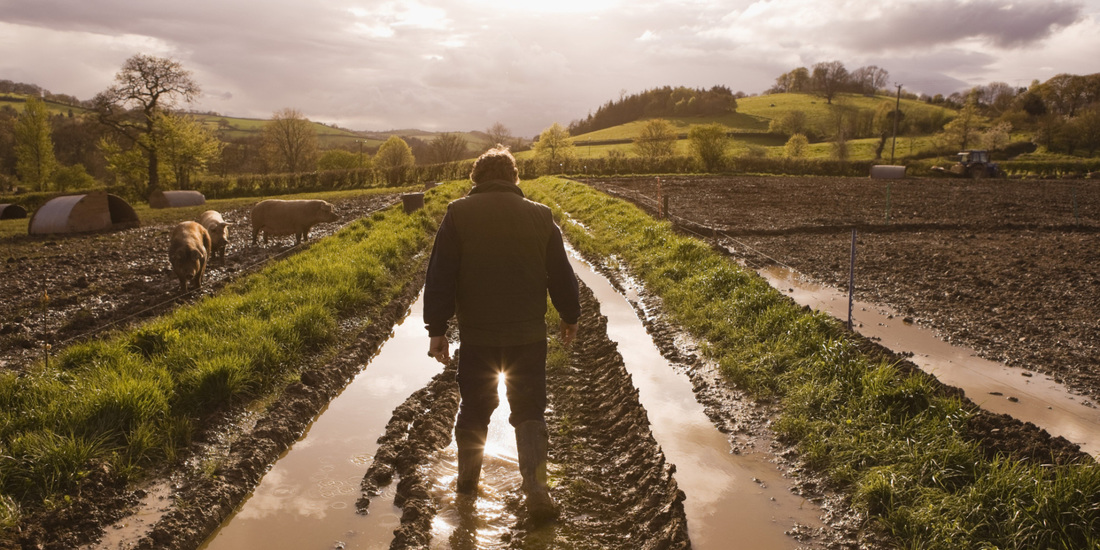The Ethical Agriculturalist: A Blog by R.A.B.
industrial farming is bankrupt. I Think it's the opportunity of a lifetime.
R.A.B.
|
Agriculture is one of the most destructive forces on the planet. Without strategic planning, it wastes shocking amounts of resources, creates poverty traps, and destroys the natural environments in which it operates. However, it doesn't need to be this way, and researchers and organizations around the world are working hard to change the trajectory of modern agriculture.
The first big change is our growing recognition that we can use farmland to store carbon. Sometimes called 'carbon farming,' this type of farm and field management is designed to increase soil carbon content, thereby sequestering carbon from the atmosphere in a long-term sink and improving soil fertility and stability. Carbon farming doesn't require any new technology, just smarter management to achieve the results we want. The CGIAR (a global agricultural research consortium) has created a helpful infographic to illustrate the concept:
Another big change is our ability to leverage modern knowledge and technology to lift people out of poverty and solve major climate injustices.
One group promoting this idea is The Farming First Coalition, a group that supports shifting to a green economy by first acknowledging the harms caused by industrial ag, and then doing something about it.
Are these changes enought? Of course not, but I know is that every effort to improve our relationship to the land and to think more deeply about our responsibility to future generations is a step in the right direction.
0 Comments
So, we recently had an election. And the climate-change deniers (and those who think it's not an issue regardless of whether it's happening) seem to have won.
Throughout the campaign, there was so little discussion of global warming in both major parties that anyone who has been living under a rock for the past twenty years and therefore has no knowledge of how sea-level rise is already flooding coastal communities in the United States, or how warmer winters are leading to the spread of tropical diseases, or even that 15 of the past 16 years have been the warmest on record would be forgiven for thinking that something called the greenhouse effect had not, in fact, been discovered in the 1820s, nor that prominent scientists such as Svante Arrhenius and Alexander Graham Bell (you know, the inventor of the telephone?) have been warning of the effects of burning fossil fuels since the late 1800s. These same rock-dwellers might have even missed the investigative reports published in the LA Times describing how Exxon executives knew, forty years ago, that their business was causing global warming. They might not have known about the ongoing investigations by five state Attorneys General to bring a case against the oil giant's ongoing commitment to heating the planet even further, which Exxon is attempting to block at this moment. Even if you haven't been living under a rock you might have missed all of this news, too, because who wants to pay attention to such depressing information? Its clear that many of our politicians were also content to pretend ignorance of global warming or its threat to humankind. But that in no way excuses us from recognizing the reality that on January 20, a man who disbelieves in climate change, along with a team of executives with a vested interest in ignoring the issue, will be taking over our federal government. They will be in a position to destroy much of the progress that Obama has made on climate change, including backing out of the Paris climate agreement, re-issuing a permit for the Keystone XL pipeline (and presumably other large oil pipelines in the future), and reverse clean-air restrictions on fossil fuel power plants. The president-elect has already named a climate change denier, Myron Ebell, to lead the EPA. Despite evidence to the contrary, Mr. Ebell contends that climate change will not be a problem for at least a hundred years and is committed to dismantling the EPA's regulatory power. Not a problem if you believe that fossil fuel energy expansion is not a great threat to human health and survival, but most of us, regardless of our state of denial, already know that this is an untenable position. This is what we chose. Though it was barely mentioned in the mainstream news, this vote was a referendum on the climate policies enacted over the past eight years under a President who believes in government doing what it can to protect its people from the damaging effects of profit-driven businesses with no regard for our health and safety. While you weren't paying attention, America decided to ignore its best interests for the interests of a con artist who played to our worst impulses in an effort to win, by any means possible. We chose a man who is himself a profit-driven business with no regard for the health and safety of the people he exploits. This is his strategy. This is what he does. This is what we chose. I still remember the day, running with my cross-country teammates among the rustling golden fields of Yellow Dent #2, when one girl picked up a fallen ear and wondered aloud where this massive acreage would end up. I looked at her incredulously. There were only two places it could possibly go: livestock feed, or industrial processing. Most of the corn grown in the great Midwest Corn Belt is not fit for human consumption. Rather, it is ground and mixed with various amounts of fat and minerals for animal feed, like the feed trucked into my father's turkey farm on a weekly basis. It feeds cows, which causes indigestion on such a scale that their farts have become a major global source of methane. Some varieties of dent corn can be processed into highly manufactured foods, but the nutritional value of these is questionable at best. Then there's the massive amount of corn that goes into industrial processing, mainly to ethanol (which is not the environment-saving boon marketers would have you believe) and bio-plastics. The cost of using prime agricultural land for industrial processing is high, and the corn belt today suffers untenable levels of soil erosion and water contamination, all to create a product that no one will eat. And the best part, according to a report issued by the Environmental Working Group, is that even the food that we do export to other countries (thus fulfilling our so-called 'feeding the world' mission) doesn't go to those who need it. The percentage of the diets of the nineteen hungriest nations supplied by the United States (including food aid) averages only 1%. So, no. We're not feeding the world. We're not even growing food. We're growing a product at the very bottom of a very long value chain, the lowest form of calories known to the world which will eventually work its way, either through an animal's or machine's stomach, into a more expensive, refined, and non-nutritious end product. My teammate, despite having grown up in a state blanketed with industrial farms, had never known a farmer. Her contact with the industry was limited to corn mazes and pumpkin patches, and the occasional trip to a local orchard. She thought cows grazed on grass and corn silage until slaughter. She thought the corn went into cans and onto farmstands and fed people. When I pointed out the error of her beliefs, she was horrified. As she had every right to be. I only knew the truth because my own father had lamented it throughout my childhood. If I had grown up with any other father, I would never have bothered to consider the truth, either. How does this happen? Like any fetishized product, untethered from the means of production, the profits in the farming industry depend on keeping the messy truth hidden. It's much easier to just throw out a slogan ("We're feeding the world!") to explain why we have to grow industrial-style monocultures than to admit that we don't really know what's going on, or worse, that we're just doing it because the market demands it. What's shameful about our ignorance is that there really are no secrets here, the information on exports is public, as are the statistics on the level of water and air contamination and erosion associated with industrial farming. There aren't any evil masterminds, except for greedy corporations fulfilling their profit directive. They're terrible, but obviously so. Brazenly bad. And still we manage to completely ignore the problem. How do we start feeding the world for real? Maybe start by growing food that people actually eat. Archives January 2019 CategoriesYou may have heard about the epidemic of farmer suicides in India, spurred in part by massive debt as farmers buy into industrialized methods of production (and lose control over their farms). You may think that this is an isolated problem caused by a lack of social safety nets, and that in our own country with a long history of industrial farming reaching back to WWII we must have a better grasp on how to deal with mass-production of commodity crops. You would be reasonable in thinking this. You would also be wrong. Farmers here in the United States have been continuously producing record crops over the past few years, a major technological feat, but are receiving less and less compensation for their work as this oversupply gluts an already saturated market. Farmers are going deeper into debt just to try to keep up with the ridiculous pace of production. They have to just for the chance to break even. Farmers are increasingly isolated as the rural countryside empties of farmers and farms become larger-scale and more automated. Add the stress of mounting debt, and it's not surprising that farmers here in the US have the highest rate of suicide of any occupation. As of 2012, farmer suicide rates (84.5/100k) were 1.6 times higher than the next highest profession (construction workers, 53.3/100k), and more than four times the national average (20.3/100k, CDC, 2012). There is no way to definitively say that farm debt and suicide rates are linked. But financial stress is certainly one pressure that pushes people to hopelessness and depression. This stress is only going to grow as we become better at producing commodity crops on a massive scale. As commodity prices fall to record lows, cheap commodity grains have passed the point of being an economically efficient way to manufacture calories. And the psychological pressure this puts on farmers is beyond justification. We should stop and ask ourselves if it's worth it. |
Archives
January 2019
Categories |




 RSS Feed
RSS Feed 
